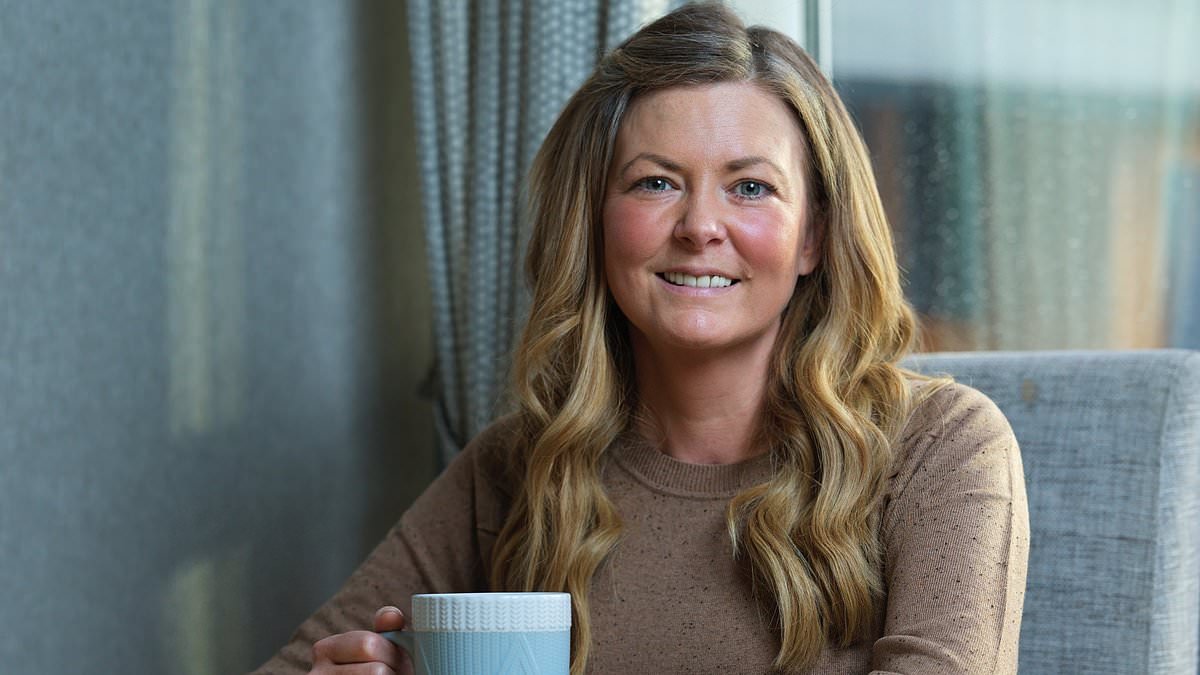Vicki Steyert, a pharmacy store manager from Wigan, Manchester, noticed alarming changes in her health when she began experiencing severe digestive issues, including rushing to the bathroom up to ten times daily and discovering blood in her stool. Disturbed by these symptoms, the then-33-year-old sought help from her general practitioner, but her tests came back normal. Reassured by her doctor that these signs indicated irritable bowel syndrome—a condition that is unpleasant but not life-threatening—Vicki felt a fleeting sense of relief.
Even after consulting a private specialist while she was seven weeks pregnant with her second child, Vicki received the same diagnosis. ‘He did blood and stool tests and they didn’t show anything, so he told me I likely had a mild inflammatory bowel disorder,’ she explained. When she mentioned her concerns about bowel cancer, her consultant dismissed her fears, asserting that her physical appearance suggested otherwise. ‘I kept being told I was much too young for bowel cancer.’
However, her health took a serious turn after she gave birth. Returning to her GP due to recurrent urinary tract infections, a scan revealed abnormalities on her liver, leading to further testing. Within weeks, Vicki was devastated to learn that she had bowel cancer, which had already spread to her liver, leaving numerous lesions.
With two young boys—Alex, aged four, and Charlie, just six weeks old—Vicki received the heartbreaking news that her condition was incurable, and any treatment would only aim to alleviate her symptoms. Despite this grim prognosis, a groundbreaking transplant procedure changed her fate. Now four years later, Vicki is cancer-free, a turnaround she attributes to being the second patient in the UK to undergo this pioneering surgery.
‘I’m still not back to normal, but I’m feeling so much better,’ she shared. ‘It just feels good to be able to think so much further ahead. For such a long time I was living for the next scan. Now I can think about what we’re doing for holiday next year.’
The rise of bowel cancer in younger demographics is alarming, with cases among those aged 25 to 49 surging by 52% since the early 1990s. Late-stage diagnoses are common, often resulting in limited treatment options. Dame Deborah James, known as ‘Bowel Babe,’ was another notable case, diagnosed with incurable colon cancer at just 35.
Symptoms of bowel cancer can include bloody stools, changes in bowel habits, and abdominal lumps that could cause obstructions. Vicki believes her age and lack of typical symptoms contributed to her misdiagnosis. ‘Before I left the private consultant’s office, I asked him what I needed to look out for,’ she recounted. The consultant assured her to return only if her symptoms worsened, which they did not.
When diagnosed, the extent of the lesions on her liver initially led doctors to declare her cancer inoperable. Beginning chemotherapy and a targeted treatment, however, yielded remarkable results, with tiny cancer particles becoming nearly undetectable in just six months. As her liver remained too damaged for conventional removal of cancer, the news of a new surgical option being trialed provided a flicker of hope.
‘It became a waiting game—but it was something to hold on to,’ she said of her resilience during treatment. This innovative procedure, which offers liver transplants to patients with advanced bowel cancer, was made available on the NHS in mid-2024, and Vicki became one of the first to receive it at Leeds Teaching Hospitals NHS Trust.
While she must take lifelong immunosuppressants and undergo regular scans, Vicki is grateful for the exceptional care she has received. Now focused on family life, she is looking forward to planning a summer holiday with her husband, Rob, and their children. ‘I wish I’d pushed more earlier on. You need to be your own advocate—always do your own research and ask questions about what’s possible,’ she concluded.

